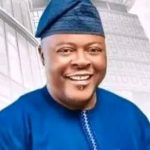A major challenge facing our nascent democracy is the lack of political ideology among our politicians. The recent decamp by governors, elected officials, and appointed leaders is largely driven by their personal interests and corruption cases, rather than the welfare of the masses. The masses are struggling with severe economic challenges stemming from a lack of proper economic understanding, inadequate blueprints, and poor leadership.
The prevailing “grab-it” pattern, characterized by electoral rigging with the help of the electoral body, security agencies, and judiciary, is a threat to our democracy. It’s time for all stakeholders in the Nigeria project to rise against this authoritarian regime, or we risk waking up to find that our country is no longer ours.
Insecurity has reached alarming levels, with thousands of lives lost, and our leaders seem more focused on politicking than addressing the crisis. The dangers of a one-party state in Nigeria are exacerbated by our diverse religious and ethnic backgrounds. A one-party state would likely lead to:
– Marginalization of minority groups: With a single party dominating the political landscape, minority groups may feel disenfranchised and marginalized, leading to further instability.
– Suppression of dissenting voices: A one-party state often suppresses dissenting voices, which could lead to a lack of accountability and further erosion of trust in government.
– Ethnic and religious tensions: Nigeria’s diverse ethnic and religious groups may experience increased tensions and conflicts if one party dominates, leading to further instability.
We must be vigilant and ensure that our democracy remains vibrant and inclusive. It’s crucial for all stakeholders to work together to prevent Nigeria from sliding into a one-party state.
Comrade Ernest Ugorji
National Leader (NIFYSF)





